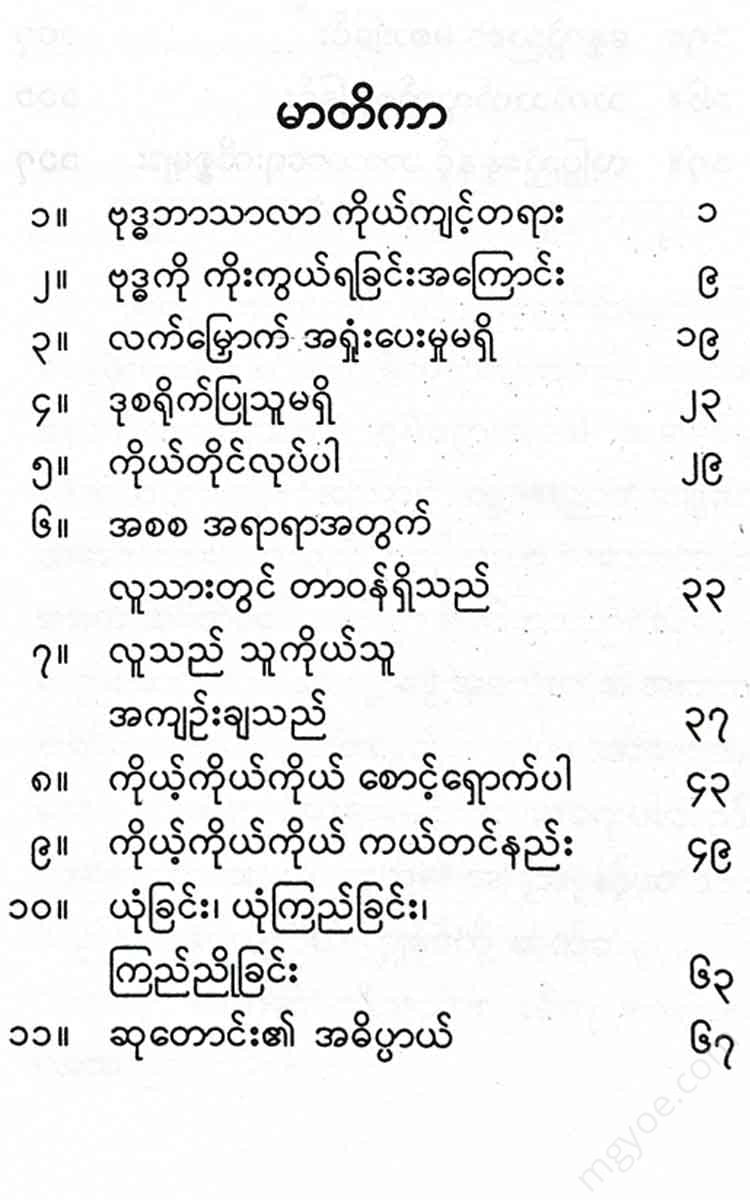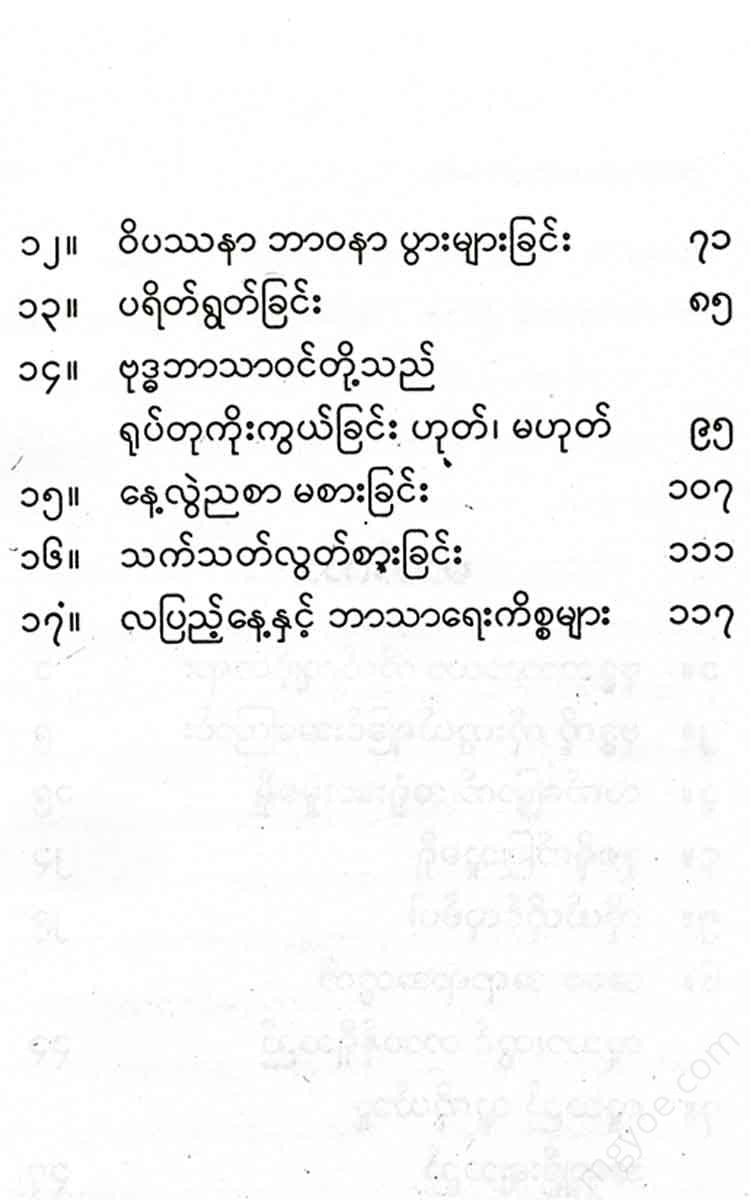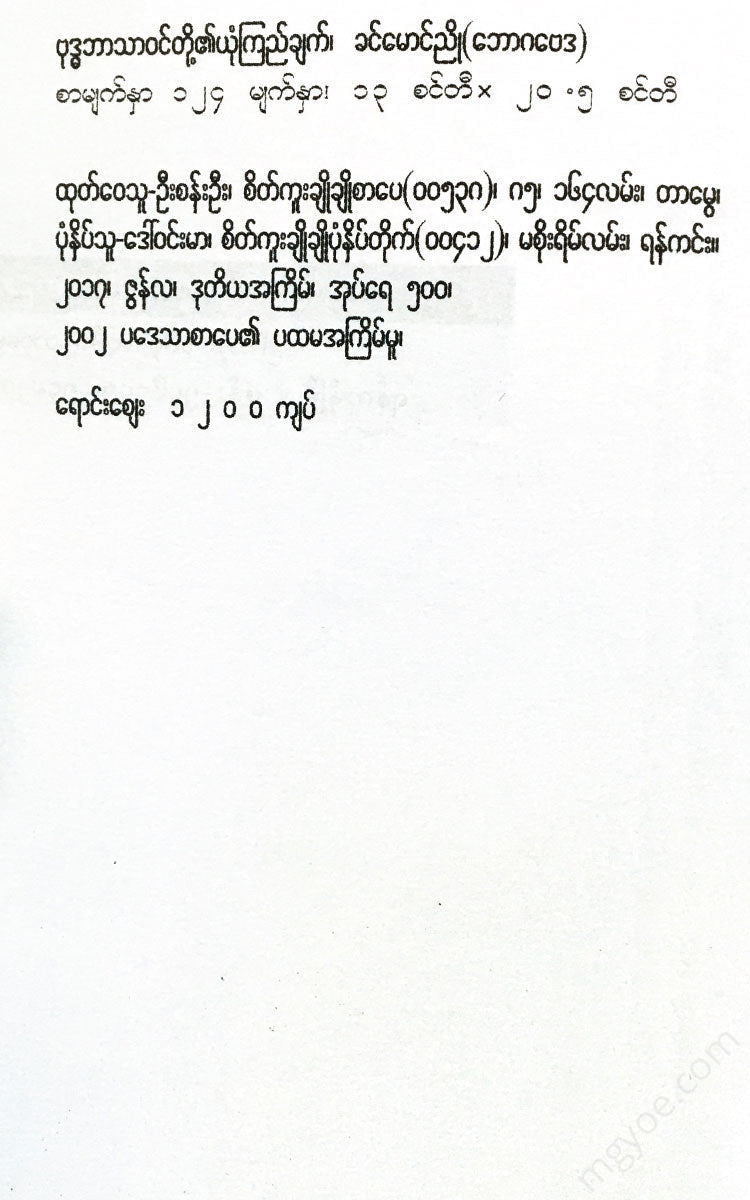စိတ်ကူးချိုချိုစာပေ
Khin Maung Nyo (Economics) - Buddhist beliefs
Khin Maung Nyo (Economics) - Buddhist beliefs
Couldn't load pickup availability
Buddhist ethics
The world today is corrupt. Valuable morals are in decline. The traditional values that have been considered human qualities are being torn apart by the growing suspicion based on material things. However, for people who are not concerned about the issues of culture and society, practical morality is important. Morality is about human behavior. Our relationship with ourselves and our relationship with others is morality.
The need for morality is that every human being is inherently imperfect. Thus, morality becomes a crucial part of living.
Buddhist morality is not a set of standards that people have invented to serve their own interests. It is not a set of rules that are imposed without regard for human benefit. Human-made laws and social customs are not the basis of Buddhist morality. For example, a certain style of dress may be appropriate in one season, one time, or one society, but it may not be appropriate in another season, another time, or another society. This is because this is only a matter of social conventions and does not take into account morality. However, superficial social conventions that are not real are often confused with moral principles and laws that are always relevant and unchanging.
The basis of Buddhist morality is not the changing social customs and traditions, but the unchanging laws and principles of nature. Buddhist morality is a part of nature. It is a part of the unchanging laws of cause and effect.
Buddhist ethics are based on natural law, which makes them applicable and acceptable to the world today. Buddhist ethics, which emerged more than 2,500 years ago, have the characteristics of being timeless.
The reason morality is practical in Buddhism is because morality is a means to ultimate happiness. On the path to liberation of a Buddhist, each individual is responsible for his own good and bad deeds. He expects and believes that he will act according to his own wisdom and diligence. In Buddhism, salvation is the result of one's own moral development. No one can save one, nor is anyone else allowed to save one. The Buddha's role is to explain the meaning of life and to advise how one and others can best achieve happiness.
Therefore, Buddhist ethics are not rules that humans must follow. The Buddha advises humans on what is wholesome. What is most wholesome. What is helpful for the welfare of oneself and others.
Instead of praising those who do evil with various words, he simply tells them that they are foolish because they are causing sorrow to themselves and others by doing this or that.
Buddhist morality is found in various precepts. These precepts show the path to ultimate liberation for a Buddhist. They are nothing more than instructions. Although many of these precepts are often described as things to avoid, it should not be assumed that one must avoid evil without doing good.
The moral law that underlies all virtues can be expressed in three basic rules. “Avoid evil, do good, and purify the mind.” This is the teaching of successive Buddhas. In Buddhism, it is easy to distinguish between good and bad. All actions based on greed, anger, and ignorance, which arise from selfishness and egotism, lead to a dangerous self-deception.









